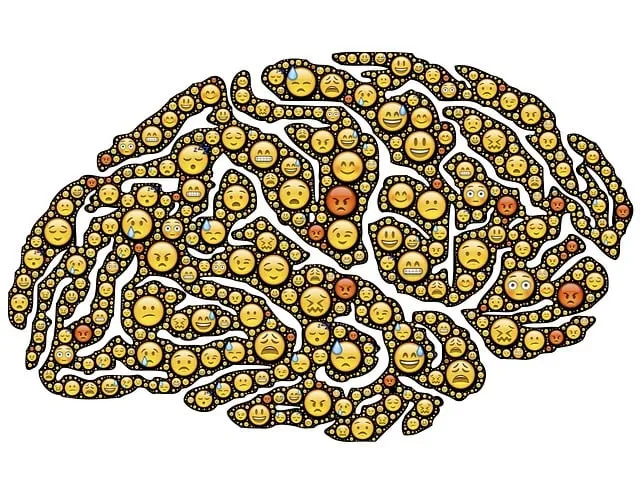Greenwood Village Kaiser's holistic mental wellness program evaluation is a multi-faceted approach combining quantitative and qualitative methods, including surveys, interviews, and data analysis, to assess program effectiveness. By integrating feedback from participants, caregivers, and professionals, these programs develop targeted interventions, enhance public awareness, and cultivate coping skills. Utilizing evidence-based therapies, burnout prevention strategies, mindfulness meditation, and self-care routines, Greenwood Village Kaiser empowers individuals with sustainable mental health practices. Quantitative assessments track improvements through standardized questionnaires, while qualitative methods provide nuanced insights into participants' emotional journeys. Integrating feedback loops ensures continuous improvement, aligning programs with community needs and fostering a culture of positive thinking and inclusive outreach.
Evaluating mental wellness programs is crucial for ensuring their effectiveness and impact. This comprehensive guide explores various methods used to assess initiatives aimed at improving mental health, including quantitative and qualitative techniques. We delve into the specific approach taken by the Greenwood Village Kaiser Mental Health Programs, providing insights into how these strategies can be applied and integrated for continuous improvement. Understanding evaluation methods is essential for optimizing care and delivering meaningful results in mental health support.
- Understanding Mental Wellness Program Evaluation: A Comprehensive Overview
- The Greenwood Village Kaiser Mental Health Programs: An Introduction
- Quantitative Assessment Methods for Mental Health Interventions
- Qualitative Techniques in Evaluating Mental Wellness Initiatives
- Integrating Feedback Loops: Continuous Improvement in Mental Health Care
Understanding Mental Wellness Program Evaluation: A Comprehensive Overview

Mental wellness program evaluation is a critical process that ensures the effectiveness and impact of interventions designed to support individuals’ mental health and well-being. It involves systematically assessing, interpreting, and utilizing data to inform decision-making and improve outcomes for participants. At Greenwood Village Kaiser, the commitment to excellence in mental health programs drives a comprehensive evaluation approach that incorporates diverse methods tailored to each initiative’s unique goals.
This process encompasses various techniques such as surveys, interviews, focus groups, and data analysis from healthcare systems. By integrating feedback from participants, caregivers, and mental health professionals, the evaluation reveals the strengths and areas for improvement in these programs. Moreover, it facilitates the development of targeted interventions, enhances public awareness campaigns aimed at promoting mental well-being, and cultivates coping skills and inner strength among individuals. The ultimate goal is to create a holistic, evidence-based framework that adapts to evolving needs within the community, ensuring optimal mental wellness outcomes for all.
The Greenwood Village Kaiser Mental Health Programs: An Introduction

The Greenwood Village Kaiser mental health programs stand as a beacon of hope and holistic care within the healthcare landscape. Designed to address the intricate needs of individuals seeking mental wellness, these programs offer a multifaceted approach that combines evidence-based therapies with innovative support systems. By integrating practices such as Burnout Prevention Strategies for Healthcare Providers, Mindfulness Meditation, and Self-Care Routine Development for Better Mental Health, the initiatives at Greenwood Village Kaiser aim to cultivate resilience, promote healing, and enhance overall well-being.
Through these programs, participants gain access to a nurturing environment that encourages exploration, self-discovery, and the development of sustainable coping mechanisms. The focus on empowering individuals to take charge of their mental health is a core principle, fostering an atmosphere where self-care is not just encouraged but deeply ingrained as a lifestyle choice. This holistic approach ensures that residents not only address immediate concerns but also build enduring resilience for navigating life’s challenges.
Quantitative Assessment Methods for Mental Health Interventions

Quantitative assessment methods play a crucial role in evaluating mental health programs, offering a structured approach to measuring the impact and effectiveness of interventions. One notable example is the use of standardized questionnaires and surveys that gauge participants’ perceptions of their mental wellness before and after program participation. These tools can provide valuable insights into various aspects, such as coping skills development, stress reduction methods, and changes in overall mental health symptoms. For instance, the Greenwood Village Kaiser mental health programs employ pre-post assessment strategies to track improvements in areas like anxiety, depression, and resilience among their clientele.
Furthermore, statistical analysis techniques enable researchers to compare outcomes across different groups, facilitating a comprehensive Mental Health Policy Analysis and Advocacy. By quantifying changes, these methods help identify which components of the program are most beneficial and contribute to evidence-based practices. This data-driven approach not only improves program design but also informs policy decisions related to mental health services, ensuring that resources are allocated effectively to address community needs.
Qualitative Techniques in Evaluating Mental Wellness Initiatives

When evaluating mental wellness initiatives like those offered by Greenwood Village Kaiser, qualitative techniques prove invaluable for understanding the nuances and impact of these programs. Methods such as interviews, focus groups, and observations allow participants to share their subjective experiences, providing rich insights into emotional well-being promotion techniques, emotional healing processes, and inner strength development. These approaches capture not just what people do within the program, but also how and why they engage with it, revealing deeper shifts in mental health and overall well-being.
Unlike quantitative measures that focus on statistical analysis, qualitative techniques offer a human-centered perspective. They enable researchers to delve into participants’ lived experiences, explore complex themes like stigma reduction, and uncover unexpected benefits or challenges. By employing these methods, evaluators can assess the program’s effectiveness beyond numerical scores, revealing the transformative power of initiatives aimed at mental wellness in communities like Greenwood Village Kaiser.
Integrating Feedback Loops: Continuous Improvement in Mental Health Care

Integrating feedback loops is a powerful strategy for enhancing mental health care services, as exemplified by the successful programs at Greenwood Village Kaiser. By actively seeking and incorporating patient feedback, healthcare providers can facilitate continuous improvement in their offerings. This approach ensures that the mental wellness programs remain relevant, effective, and aligned with the evolving needs of the community they serve.
The process involves a systematic Mental Health Policy Analysis and Advocacy, encouraging open dialogue between patients and care teams. Through this exchange, individuals who participate in these programs can share their experiences, insights, and suggestions for change. By listening to and acting upon this feedback, healthcare organizations like Greenwood Village Kaiser can foster a culture of Positive Thinking, where patient voices drive the evolution of mental health support systems. Moreover, this method promotes a Community Outreach Program Implementation that is more inclusive and responsive to diverse populations, ultimately enhancing the overall effectiveness and accessibility of mental wellness initiatives.
The evaluation of mental wellness programs is a multifaceted process that leverages both quantitative and qualitative methods. As discussed, the Greenwood Village Kaiser mental health programs exemplify best practices in this area, combining robust data analysis with deep qualitative insights to measure success and drive continuous improvement. By employing techniques such as survey metrics, interview transcripts, and feedback loops, these programs ensure their effectiveness and adaptability to evolving needs. This comprehensive approach not only enhances patient outcomes but also sets a standard for mental health care across the industry.




